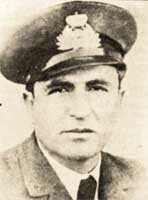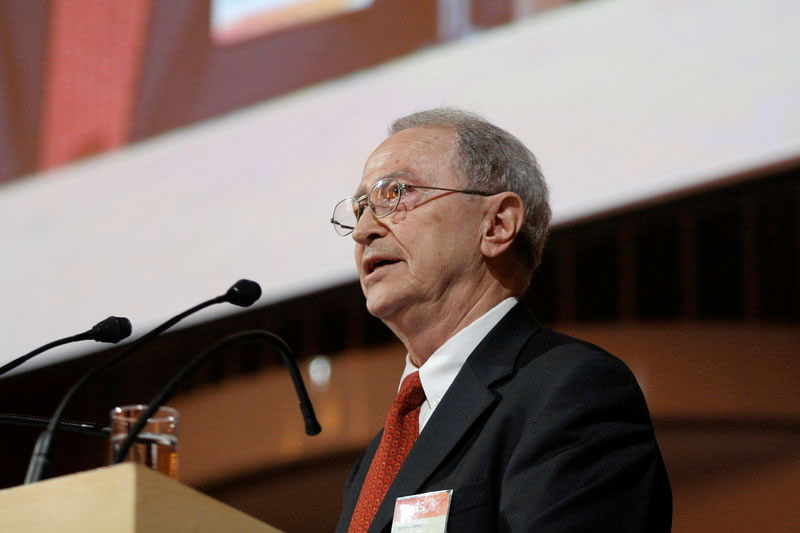Kostas Perrikos - The Chian against the Nazi
 In September 1942 an attack shook whole Greece occupied by the Nazi. Kostas Perrikos and other combatant killed many German officers with an enormous explosion in central Athens. Media from Moscow to London called this assault the so far most important blow against Hitler in the areas occupied by the Nazi. Perrikos, who wasborn on Chios, got nationwide an admired but tragic hero.
In September 1942 an attack shook whole Greece occupied by the Nazi. Kostas Perrikos and other combatant killed many German officers with an enormous explosion in central Athens. Media from Moscow to London called this assault the so far most important blow against Hitler in the areas occupied by the Nazi. Perrikos, who wasborn on Chios, got nationwide an admired but tragic hero.
Kostas Perrikos (in Greek: Κώστας Περρίκος) was born 1905 in Kalimasia on the island of Chios. Situated in the south-west of Chios, the village has one thousands inhabitants and is surrounded by endless olives trees.
 The first time he attracted public attention was in 1935: After altogether 15 years as the Prime Minister of Greece Eleftherios Venizelos, now honored as the "maker of modern Greece", were defeated in the elections. Instead of the liberal Venizelos, who was fighting his political career against the monarchy, a pro-royalist government came to power. Perrikos, serving as an air force officer, allied with Venizelist general Nikolaos Plastiras. The resulting coup attempt ended in a complete disaster with Venizelos and Plastiras fleeing to France. The Venizelist movement was dead and with it the Second Hellenic Republic (lasted from 1924 - 1935) the monarchy restored. Kostas Perrikos, meanwhile, was suspended from the Army, but stayed in Greece.
The first time he attracted public attention was in 1935: After altogether 15 years as the Prime Minister of Greece Eleftherios Venizelos, now honored as the "maker of modern Greece", were defeated in the elections. Instead of the liberal Venizelos, who was fighting his political career against the monarchy, a pro-royalist government came to power. Perrikos, serving as an air force officer, allied with Venizelist general Nikolaos Plastiras. The resulting coup attempt ended in a complete disaster with Venizelos and Plastiras fleeing to France. The Venizelist movement was dead and with it the Second Hellenic Republic (lasted from 1924 - 1935) the monarchy restored. Kostas Perrikos, meanwhile, was suspended from the Army, but stayed in Greece.
Kostas Perrikos - A lifelong revolutionary
From 1940 on a new, foreign threat appeared: On the 28th of October the Greek dictator Ioannis Metaxas said „όχι“ (ochi: no!) to an ultimatum of Mussolini for positioning Italian troops in Greece. As a result Greece was occupied by Nazi-Germany in 1941. This circumstance was barely acceptable for the fervent Republican Perrikos, after the submergence during the Metaxas period, he had regained his revolutionary spirit.
 In June 1941, he was a founding member of the "Army of Enslaved Victors", one of the first resistance groups against the Germans. However, Perrikos was dissatisfied by the organization neutrality on the crucial issue of the post-war regime (which means monarchy or republic). Together with a number of others, he split off to found the Panhellenic Union of Fighting Youths (short: PEAN). Under the leadership of Perrikos the PEAN became one of the most active resistance groups in Greece calling for sabotage acts and publishing a newspaper called "Glory". They basically concentrated on Athens and Pireaus. Perrikos also formed the organization after his ideas: In this way the group was leftist-socialist, advocating "social justice", while being vehemently opposed to any return of the monarchy. But the first priority remained the fight against the occupying forces.
In June 1941, he was a founding member of the "Army of Enslaved Victors", one of the first resistance groups against the Germans. However, Perrikos was dissatisfied by the organization neutrality on the crucial issue of the post-war regime (which means monarchy or republic). Together with a number of others, he split off to found the Panhellenic Union of Fighting Youths (short: PEAN). Under the leadership of Perrikos the PEAN became one of the most active resistance groups in Greece calling for sabotage acts and publishing a newspaper called "Glory". They basically concentrated on Athens and Pireaus. Perrikos also formed the organization after his ideas: In this way the group was leftist-socialist, advocating "social justice", while being vehemently opposed to any return of the monarchy. But the first priority remained the fight against the occupying forces.
When Perrikos realized that his calls for sabotage acts didn't work well, he decided to make the first step, a deed that led to his death. In the course of those plans Perrikos and the PEAN concentrated on the ESPO, the "National Socialist Patriotic Organization", and her headquarters situated in the center of Athens. The ESPO was a collaborationist, pro-Nazi organization, whose purpose was to recruit young people to create a Greek division of the Waffen SS, fighting alongside the Germans on the Eastern Front. In order to do so, they promoted their goal with advertisement like "Greek youth, join the pioneers of the New Order" in whole Athens. The mentioned target was a four-story stone building with several shops and offices inside. In addition to the ESPO also the Geheime Feld Polizei, the German Field Police, had an office in the building. Every Sunday between 9 and 11 AM, the ESPO officials held a meeting with their members - the perfect occasion for Perrikos and his crew to strike. His team consisted of the telephone company technician Antonis Mitilinaios, the technician Nicos Mourtos, the university students Spiros Galatis, Takis Mihailidis, Spiros Stanotas and Nicos Lazaris, the coffee shop owner Petros Lameras and Julia Bilbas.
 On the 20th September 1942, a Sunday, at noontime finally a powerful explosion shook the center of Athens, when 14 kilograms dynamite detonated. The bomb attack in the offices of the ESPO killed around 40 ESPO members (additionally six Germans were wounded), amongst others the founder of ESPO Dr. Spyros Sterodimas, but no single civilian. The bomb attack shocked whole Athens and everybody hurried to the place, although the Germans blocked the street quickly (the picture above in the right shows the Patision street right after the bomb attack). Witness Rigas Rigopoulos wrote in his book "Secret War: Greece-Middle East, 1940-1945" about the dramatic event: He speaks about the ESPO as "a national danger that had to be annihilated", an organization, which is doing "dirty business". After the bomb attack he reports about passerby, who were "filled with gleeful satisfaction".
On the 20th September 1942, a Sunday, at noontime finally a powerful explosion shook the center of Athens, when 14 kilograms dynamite detonated. The bomb attack in the offices of the ESPO killed around 40 ESPO members (additionally six Germans were wounded), amongst others the founder of ESPO Dr. Spyros Sterodimas, but no single civilian. The bomb attack shocked whole Athens and everybody hurried to the place, although the Germans blocked the street quickly (the picture above in the right shows the Patision street right after the bomb attack). Witness Rigas Rigopoulos wrote in his book "Secret War: Greece-Middle East, 1940-1945" about the dramatic event: He speaks about the ESPO as "a national danger that had to be annihilated", an organization, which is doing "dirty business". After the bomb attack he reports about passerby, who were "filled with gleeful satisfaction".
Witnesses attest Kostas Perrikos an "explosive nature" - A characteristic which probably led to his death
The echo the bomb attack produced was tremendous: Talk in Athens and broadcasting from Radio Moscow to the BBC highlighted the event as a big sign of hope and the biggest sabotage act against the Germans so far. Indeed the attack marked the end of the ESPO, as the Nazi collaborators were unable to recover from the attack. Therefore also the efforts of the Nazi to recruit young Greeks for the Wehrmacht failed.
According to Rigas Rigopoulos, Perrikos had an "explosive nature". Rigopoulos s ays that he spoke "too often and too openly" seeing all Greeks as his brothers. His "enormous emotional reservoir" led to a "lack of secrecy", Rigopoulos concludes. So the answer of the Nazi didn't take long to come: After the betrayal of the group by gendarmerie officer Polykarpos Dalianis on 11. November the Nazi managed to arrest the core of PEAN, including the leader Kostas Perrikos.
ays that he spoke "too often and too openly" seeing all Greeks as his brothers. His "enormous emotional reservoir" led to a "lack of secrecy", Rigopoulos concludes. So the answer of the Nazi didn't take long to come: After the betrayal of the group by gendarmerie officer Polykarpos Dalianis on 11. November the Nazi managed to arrest the core of PEAN, including the leader Kostas Perrikos.
On the 31. December a military court condemned the arrested to death. On 4th of February 1943, Kostas Perrikos was executed in Kaisariani, a suburb in the eastern part of Athens. The PEAN carried on, continuing publishing the "Glory" and again caused turmoil with sabotage acts against the Germans in 1944.
Kostas Perrikos' son, Dimitris Perrikos, started a military career too. Dimitris (see the picture on the right), born during Kostas' stay in Athens, was the former second Chairman of the United Nations Monitoring, Verification and Inspection Commission from 2003 - 2007.
Sources:


